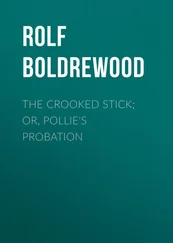Rolf Boldrewood - War to the Knife
Здесь есть возможность читать онлайн «Rolf Boldrewood - War to the Knife» — ознакомительный отрывок электронной книги совершенно бесплатно, а после прочтения отрывка купить полную версию. В некоторых случаях можно слушать аудио, скачать через торрент в формате fb2 и присутствует краткое содержание. Жанр: foreign_antique, foreign_prose, на английском языке. Описание произведения, (предисловие) а так же отзывы посетителей доступны на портале библиотеки ЛибКат.
- Название:War to the Knife
- Автор:
- Жанр:
- Год:неизвестен
- ISBN:нет данных
- Рейтинг книги:4 / 5. Голосов: 1
-
Избранное:Добавить в избранное
- Отзывы:
-
Ваша оценка:
- 80
- 1
- 2
- 3
- 4
- 5
War to the Knife: краткое содержание, описание и аннотация
Предлагаем к чтению аннотацию, описание, краткое содержание или предисловие (зависит от того, что написал сам автор книги «War to the Knife»). Если вы не нашли необходимую информацию о книге — напишите в комментариях, мы постараемся отыскать её.
War to the Knife — читать онлайн ознакомительный отрывок
Ниже представлен текст книги, разбитый по страницам. Система сохранения места последней прочитанной страницы, позволяет с удобством читать онлайн бесплатно книгу «War to the Knife», без необходимости каждый раз заново искать на чём Вы остановились. Поставьте закладку, и сможете в любой момент перейти на страницу, на которой закончили чтение.
Интервал:
Закладка:
Thus pondering, he managed to discover his hotel, where he set himself resolutely to sketch out a plan of future operation, before completing which, he deemed it advisable to deliver some of the letters of introduction with which he had been plentifully supplied. One of the more immediate effects of this action was the outflow of an inordinate quantity of advice, from the recipients of which, as a newly arrived Englishman, he was deemed to be in urgent need.
These exhortations were compendious and exhaustive, but failed in effect upon him from their very affluence, so much of the suggestive information being in direct contrast to that which immediately preceded it.
Having admitted that he intended to purchase a large block of land for farm and grazing purposes, it was astonishing how much interest he excited among the mercantile or pastoral magnates to whom he had been accredited.
"Have nothing to do with that infernal New Zealand Company," said one grizzled colonist, "or you'll never cease to regret it. They're all in the same boat with certain British members of Parliament and the local political gang, to rob these poor devils of natives of their tribal lands. Title? They haven't a rag. Some artful devil of a Maori – and they are not behindhand in that line – pretends to sell the lands of his tribe, for a few barrels of gunpowder or cases of Yankee axes – of course signs a bogus deed."
"But isn't he their accredited agent?" queried our hero. "They would be bound by his act."
"Agent be hanged!" quoth the pioneer impetuously. "This allotment belongs to me; have I a right therefore to sell the whole town? Though, between you and me, there are men in business here who would have a try at it, if they could delude one of you innocent new arrivals into taking his word and paying over the cash."
"I trust I'm not quite so innocent," replied Massinger, smiling, "as to make purchases without due inquiry."
"Depends upon whom you inquire from," said his experienced friend. "Advice is cheap, or rather dear enough, when the giver has an axe to grind."
"Then how am I to find out, if no one is to be trusted in this Arcadia of yours?"
"Devilish few that I know of," rejoined the senior. "The Government officials and the Land Commissioners are, perhaps, the safest. They have some character to lose, and are fairly impartial."
"After what you have said, may I venture to ask counsel from you?" – instinctively trusting the open countenance and steady eye of the pioneer.
"Oh! certainly; you needn't take it, of course. Don't be in a hurry to invest; that's my first word. The next, buy from the Government ; they have a title – that is, nearly always – and are bound to support you in it."
"But suppose their title is disputed? What will they do?"
"Take forcible possession, which means war . And Maori war – savages, as it's the fashion industry call them – is no joke. And mark my word, if they're not more careful than they have been lately, 'the deil will gae ower Jock Wabster.'" Here the speaker lapsed into his native Doric, showing that though half a century had rolled by since he first anchored in the Bay of Islands, and the Southern tongue had encroached somewhat, he had not forgotten the hills of bonnie Scotland or the expressive vernacular of his youth.
"But surely the tribe, whichever it may happen to be, could not stand against British regulars?"
"So you may think. But I was in the thick of Honi Heke's affair in '45, and I could tell you stories that would surprise you. You must remember that, as a people, the New Zealanders are among the most warlike races upon earth, inured for centuries past to every species of bloodshed and rapine, and bred up in the belief that a man is a warrior or nothing. Fear, they know not the name of. They are wily strategists, as you will observe, when you see their 'pahs,' and the nature of their primeval forests gives them an immense advantage for cover or concealment."
"Then you think there may be another war?" inquired Massinger, with some interest.
"Think! I'm sure of it. Things can't go on as they are. We're in for it sooner or later, and all because the Governor, who means well, lets himself be led by half a dozen politicians, in spite of the advice of the old hands and the friendly chiefs, our allies, who have as much sense and policy as all the ministry put together."
"But will not they always naturally lean to their own countrymen?"
"Far from it – that's the very reason. Most of these chiefs have tribal feuds and hereditary enemies, as bitter and remorseless as ever my Hieland ancestors enjoyed themselves with. Others, like Waka Nene, since they were Christianized by the early missionaries, have cast in their lot with the whites. They fought shoulder to shoulder with us, and will again, even if they disapprove of our policy."
"What an extraordinary people!" said Massinger. "And if war breaks out, as you think likely, what will become of the colonists?"
"They will have to fight for it. Murders and every kind of devilry will result. But we have fought before, and can again, I suppose. These islands are going to be another Britain; and even if there has been some folly and injustice, England always means well, and we are not going to give them up. 'No, sir,' as my American friends say."
"I rather like the prospect," said Massinger. "A good straightforward war is a novelty in these too-peaceful days. If I had any notion of leaving New Zealand, which I have not, this would decide me. Good morning, and many thanks. I will see you again before I decide on anything fresh."
"There's grit in that young yellow," quoth the ex-skipper, as he walked out. "Bar accidents, he's the sort of man to make his mark in a new country."
The man so referred to walked down the street, deeply pondering.
"I have got into the land of romance," thought he, "without any manner of doubt. What a pull for a fellow in these degenerate days! It raises one's spirits awfully. In addition to such a country for grass and roots as I never dreamt of it, to think of there being every probability of a war! A real war! It reminds one of the 'Last of the Mohicans,' and all the joys of youth. We shall have 'Hawkeye,' 'Uncas,' and 'Chingachgook' turning up before we know where we are. Oh! fortunati nimium – Halloa! what have we here?"
What he saw at that moment was something which had hardly entered into his calculations as a peaceful colonist. But it was strangely in accord with the warning tone of Captain Macdonald's last deliverance. A section of the Ngatiawa tribe, which had visited Auckland on the matter of a petition to the Governor concerning the violation of a reserve, the same being tapu under ceremonies of a particularly awful and sacred nature, were indulging themselves with a war-dance by way of dissipating the tedium necessitated by official delay. A crowd of the townspeople had collected at the corner of Shortland Street, while the tattooed braves were with the utmost gravity going through the evolutions of their horrific performance. Chiefly unclothed, they stamped and roared, grimaced and threatened, as in actual preparation for conflict. Musket in hand, they leaped and yelled like demoniacs; their countenances distorted, the eyes turned inward, their tongues protruded as with wolfish longing. Each man was possessed by a fiend, as it seemed to Massinger, who gazed upon the actors with intense interest. The performance, hardly new to the majority of the spectators, failed to impress one of them with due respect. He remarked upon the pattern tattooed on the thigh of a huge native in front of him to a comrade, ending with a rude jest in the Maori tongue. It was a mauvaise plaisanterie in good sooth. Turning like a wild bull upon the astonished offender, and furious at the insult offered to his moko – sacred as the totem of an Indian chief – the Ngatiawa dashed the butt-end of his musket against his breast, sending him on to his back with such violence that he had to be assisted to rise, stunned and bewildered. The Maoris wheeled like one man, and formed in line, while the leader shouted Kapai! as they marched through the crowd to their camp, chanting a refrain which no doubt might have been freely rendered, "Wha daur meddle wi' me?"
Читать дальшеИнтервал:
Закладка:
Похожие книги на «War to the Knife»
Представляем Вашему вниманию похожие книги на «War to the Knife» списком для выбора. Мы отобрали схожую по названию и смыслу литературу в надежде предоставить читателям больше вариантов отыскать новые, интересные, ещё непрочитанные произведения.
Обсуждение, отзывы о книге «War to the Knife» и просто собственные мнения читателей. Оставьте ваши комментарии, напишите, что Вы думаете о произведении, его смысле или главных героях. Укажите что конкретно понравилось, а что нет, и почему Вы так считаете.












